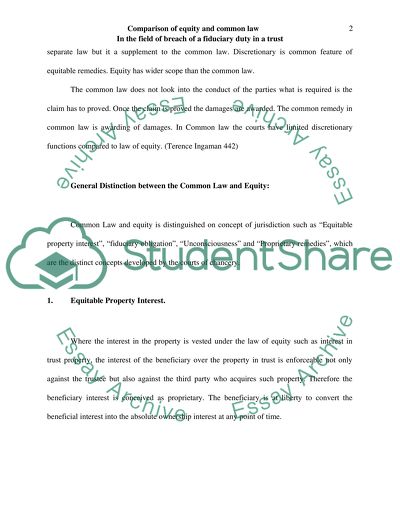Retrieved from https://studentshare.org/miscellaneous/1505800-comparison-of-equity-and-common-law-in-the-field-of-breach-of-a-fiduciary-duty-in-a-trust
https://studentshare.org/miscellaneous/1505800-comparison-of-equity-and-common-law-in-the-field-of-breach-of-a-fiduciary-duty-in-a-trust.


